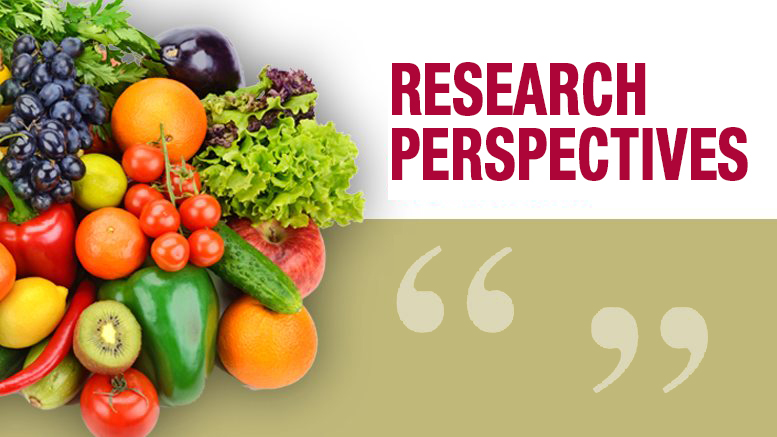Shoppers Looking For Budget-Friendly Produce
January 4, 2023 | 4 min to read
Consumer buying behaviors in 2022 are heavily influenced by recession fears and a shift toward sustainability. Research by Provoke Insights indicates that 70% of consumers have become more budget-conscious, with nearly one-fifth planning to cut back on fresh produce purchases due to inflation. Additionally, concerns over the sustainability of packaging persist, as 62% of consumers believe it could be improved. As economic pressures rise, maintaining a balance between spending and healthy eating becomes critical for produce brands.

By Carly Fink, Provoke Insights
Originally printed in the November 2022 issue of Produce Business.
Two clear trends impacting consumer buying behaviors this year are recession fears and products becoming more sustainable. How do these macro trends impact the fresh produce industry? Provoke Insights investigated these ever-important topics.
Provoke Insights, a full-service market research firm and brand consultancy, conducts a biannual nationwide study among Americans. The fifth wave of research sought to understand Americans’ purchasing habits and trends in over a dozen categories, including fresh produce. This wave focuses on external trends impacting purchasing behavior, including inflation and sustainability.
CURRENT STATE OF THE MARKET
As consumers gasp at their receipts after filling their gas tanks, it is essential to see how inflation and other external trends impact consumer buying habits and attitudes. As many fear a recession is inevitable, it is crucial to evaluate how the market environment influences the amount consumers spend.
Consumers fear the country’s financial future, as inflation (65%) and the economy (63%) are major concerns. As a result, optimism levels have sunk to 69%, which is three points lower than during the pandemic’s peak in the fall of 2020.

Consumers are especially experiencing price increases firsthand at supermarkets and restaurants. As a result of these price increases, 70% of consumers say they have become more budget conscious in the last six months. Their money-saving techniques include eating more at home (39%), making fewer impulse purchases (29%), and buying store-label brands (22%). If this trend continues, brands need to know that these budgeting habits may impact companies’ profitability.
INFLATION IMPACT ON FRESH PRODUCE
As consumers tighten their pockets due to inflation, almost one-fifth of grocery shoppers plan to reduce their fresh produce purchases. Not surprisingly, these are the same individuals who are less optimistic about the future and have become more budget conscious in the last six months.
People who are buying fresh produce say the process is not problem-free. The majority (82%) say the price increases of vegetables and fruit are an issue. Established consumers like baby boomers and affluent households are noticing the price increases significantly more than other groups. As these groups are often the larger spenders, it is imperative to remind these consumers that fresh fruits and veggies are essential for a delicious and well-balanced diet. Produce brands will need to do more to stay top of mind with these consumers so they do not feel they need to compromise their healthy eating habits to save money.
Due to inflation, almost one-fifth of grocery shoppers plan to reduce their fresh produce purchases.
Grocery shoppers are not just fixated on their sticker shock; they also notice other issues while shopping, like a limited selection of fresh fruits and vegetables available at the grocery store (51%), as well as a lack of fresh produce (41%). Consumers were less concerned about purchasing a specific brand (16%).
SUSTAINABILITY AND PRODUCE PACKAGING
The media, the government, and special interest groups have put sustainability initiatives at the forefront in 2022. However, what do consumers feel about green initiatives and their expectations for grocery food products being sustainable?
Twenty-seven percent of Americans consider themselves environmentally conscious. They are often Democrat, have a high household income, and are male. However, even people who are not environmentally conscious are worried about the environment. Nearly two-fifths of Americans (39%) fear what’s happening with our environment.
One-fifth of consumers are willing to pay more for environmentally sourced items. These individuals are often Democrats, parents, Generation Z or millennials, and have a high household income.
Supermarket packaging is not considered sustainable by nearly two-thirds (62%) of grocery shoppers, who agree the packaging could be more eco-friendly. While the packaging for produce fared slightly better than overall grocery packaging, it still scored quite low, with 54% seeing it as not meeting their sustainability standards. Those who say there is room for improvement regarding fresh vegetable and fruit packaging are more likely to not be optimistic for the future, Generation X, and females.
Provoke Insights is a full-service global market research and brand strategy firm. As a builder of brands, the firm solely focuses on research for branding, advertising and content marketing initiatives. Provoke Insights empowers brands with the insights they need to navigate the cluttered marketing space and improve ROI. Carly Fink is the firm’s president and head of strategy and research.
Methodology. Provoke Insights conducted a 15-minute online survey among 1,500 Americans between ages 21 and 65. The study was fielded from Sept. 21-30, 2022. A random stratified sample and weighting methodology was used to ensure a high degree of representation of the U.S. population (household income, age, gender, geography, ethnicity, and parental status). Results based on this sample have a maximum margin of sampling error of +/- 2.5% at a 95% confidence level. Statistical differences between subgroups indicated in this research were tested at a 95% confidence level. Check the Fall 2022/Winter 2023 Trends page for the latest category research, including fresh produce.

